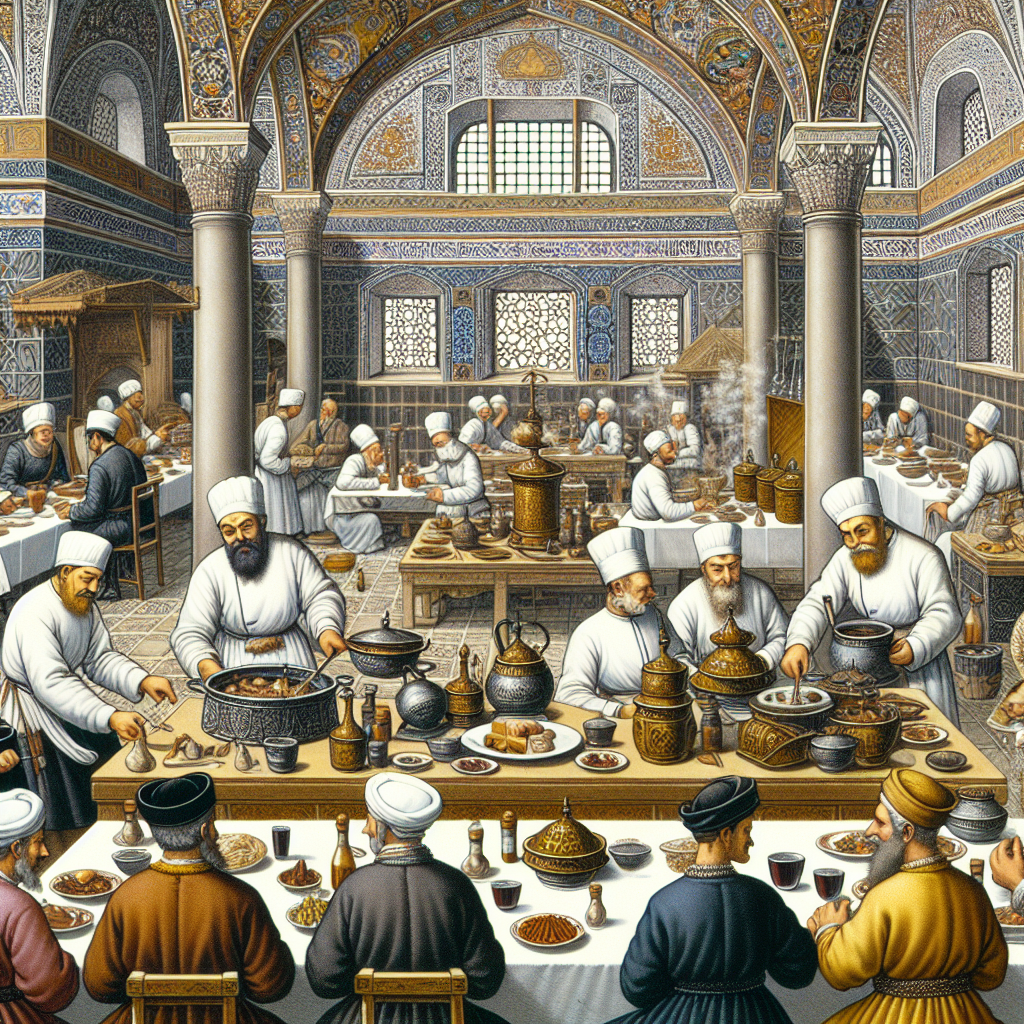Culinary Diplomacy in Constantinople
The Role of Food in Veneto-Ottoman Diplomacy

A banquet between Christian and Muslim dignitaries in Constantinople. Image created by AI.
One aspect still little under-researched by contemporary historiography is the so-called culinary diplomacy (or ‘gastrodiplomacy’): it is a cross-disciplinary approach that aims to study the role of food in influencing diplomatic relations between two or more states. Sam Chapple-Sokol, one of the first to scientifically address this approach, defines it as "the use of food and cooking as a tool to create cross-cultural understandings and connections, in the hope of improving the interactions and cooperation" of those who use it. However, there are studies - albeit very rare - that analyse gastrodiplomacy even in past eras, such as those recently led by Professor Eric Dursteler. An expert on Venetian history, Dursteler has devoted more than a decade of his work to studying how food played a crucial role in Veneto-Ottoman relations. At the end of the 16th century, Venice was forced to sustain a policy of neutrality due to the wars lost in the second half of the century, such as the War of Cyprus (1570-1573). In this regard, food proved particularly useful for obtaining intelligence on Ottoman court affairs. Marino Cavalli, a bailo returned from Constantinople in 1560, emphasised this aspect of food in a treatise he published the following year, called Informatione dell'offitio dell'ambasciatore: Cavalli argued that a good ambassador, besides having the reputation of a man of integrity and absolute valour, should always have a table well provided with delicacies. According to Cavalli, this culinary abundance would have contributed to the trust of the Ottoman court officials, who would then be more willing to reveal sensitive intelligence. Among the foods the Venetians offered most to the Ottomans were pistachios, almonds and marzipan. It is also said that the Sultane's were particularly fond of ‘Piacentine cheese’: this is obviously the ancestor of Parmigiano Reggiano - very different, however, from what we are used to eating today.
Sam Chapple-Sokol, 'Culinary Diplomacy: Breaking Bread to Win Hearts and Minds', The Hague Journal of Diplomacy 8 (2013): 161-183.
Eric R. Dursteler, "'A Continual Tavern in My House': Food and Diplomacy in Early Modern Constatinople", Renaissance Studies in Honor of Joseph Connors, eds. Machtelt Israels e Louisa A. Waldman (Cambrige, MA: Harvard University Press, 2013), 166–71.
Alberto Grandi, Denominazione di Origine Inventata (Milan: Mondadori, 2018), 83-89.
2025-06-25
Giacomo Tacconi
